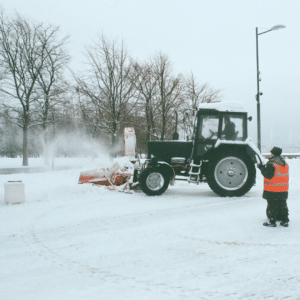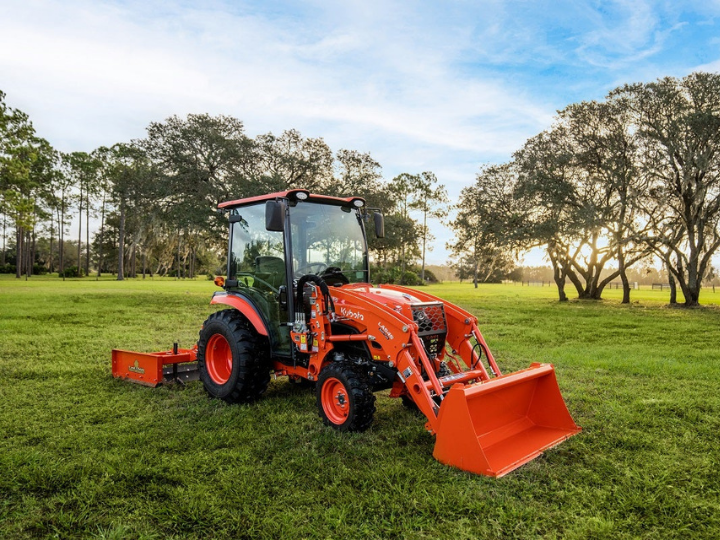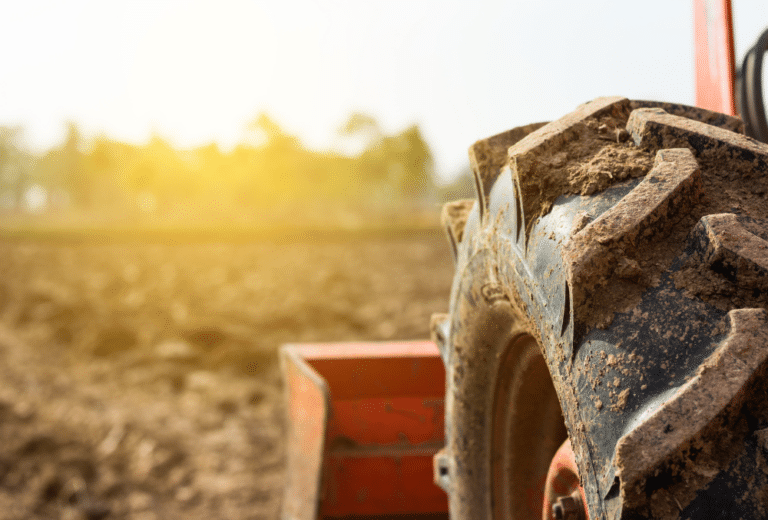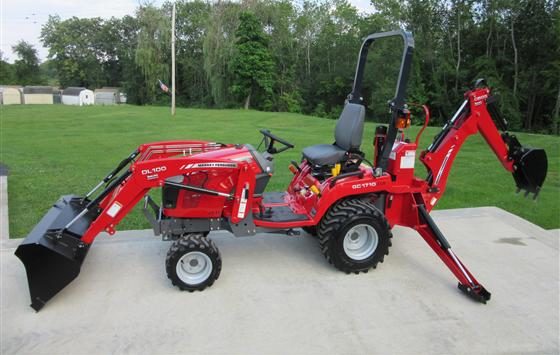As a proud tractor owner, the term ‘winter is here’ may give you goosebumps. Winters can be tough for tractors and can significantly increase maintenance costs if they are not properly stored and prepared. When spring time comes around, you might want to follow these tips for preparing!
A tractor is a big investment, so it is certainly worth it to take the steps to protect it while it is not in use. Many tractor owners suffer financial losses when they take their machine out in the spring – so if you think just stowing it away in the barn or a hatch with a cloth over it will give your valuable asset 5-star protection, it’s time to think again.
Cold weather and downtime can be damaging to your tractor, especially if it runs on diesel, which is why it is imperative to winterize your tractor before the dreaded months of extreme winter. Now when we say winterize, it does not necessarily refer to simply tucking away the machine and not using it for a while. It means preserving it in every way possible to prevent unnecessary wear and tear and expensive repairs when it’s taken out of storage in the spring.
Many people might assume that a machine will not wear out if it isn’t used, even for months. However, that is not entirely true. Winters can cause a number of problems, which include the engine, transmission, radiator, rubber seals, body, tires, and so many other parts.

As a proud tractor owner, you need to understand the actual worth of your tractor. You wouldn’t want to replace heavy body parts right in the middle of a job when you need your tractor working!
Here are some more important tips to keep your tractor in top shape during winter months:
Maintaining the Engine
It goes without saying that a tractor’s engine is critical to the use of the machine. Now you must be thinking, how can a tractor that is not even operated during winter months require maintenance and winterizing? There are many factors to consider, such as gasoline and oil left over from the summer months.
Used engine oil has the tendency to condense in cold weather, and acid from the engine tends to get mixed in with the oil over time, therefore the inner metallic parts of the engine can begin to corrode while your tractor is in storage – especially the softer metal bearings. Changing the oil before placing your tractor in storage is ideal for this reason.
When you want to winterize your tractor, you should remember to drain the used oil and refill it with new and unused oil, as it keeps the moisture out and does not harm the engine.
Fuel
One should also consider the impact of leaving fuel in the tank throughout the winter months, as this can cause many issues come springtime. Clogs, corrosion and condensation can also develop throughout the fuel system if not properly prepared for storage, which could mean you will require a costly professional engine cleaning and maintenance.
If you are storing the tractor outside, it is best to let the fuel tank run dry at the end of the season. Storing your tractor inside is a different story, you should fill it with gas and then top it off with a fuel stabilizer. If you decide to fill the tank, it is best to run the engine for a few minutes afterwards to allow the stabilized fuel to work its way through the engine.
Tires
Many tractor owners tend to store their machines on bricks to reduce the burden on tires. While that may seem like an effective trick, it does not work as a stand alone technique. The best way to winterize your tires is to ensure they are fully inflated, and keep them out of direct sunlight or near heat.
Due to extreme cold, the air in the tire is bound to get compressed, causing slight deflation, which in turn can cause an unnecessary burden on the tire resulting in cracks. By ensuring the tires are fully inflated, you can minimize the stress on the tires, despite keeping them fixed on the tractor.
General Maintenance
If you are planning on storing your tractor throughout the winter and will not be using it again until spring, there are a few more simple maintenance procedures to consider. Clean the machine thoroughly and ensure that any dry grass or leaves around the engine are cleared.
If you have purchased attachments or accessories, make sure to detach them and store them in a safe place. Give these a good cleaning as they can deteriorate over time if not properly maintained.
Check coolant levels and make sure the coolant can withstand the cold temperature without freezing, as some people with older tractors have been known to insert water in the coolant system to prevent overheating. Inspect the machine for loose nuts and bolts, and tighten any if necessary. Apply grease to areas where bare metal can rust, or pivot areas. Remove the battery if possible and keep the tractor in a dry, sheltered area.
If you need to store it outdoors, ensure your tractor is covered with a waterproof tarp and kept as dry as possible. Lastly, remove the ignition key to prevent children or others from tampering with the unattended machine.
Tractor Protect – Insurance for your Tractor
We at Tractor Protect and Duliban Insurance know how valued a tractor can be, and how important it is to protect your investment year round. By following these winterizing recommendations and partnering them with an all risk tractor insurance policy, you can be confident that your investment will be protected for years to come!











